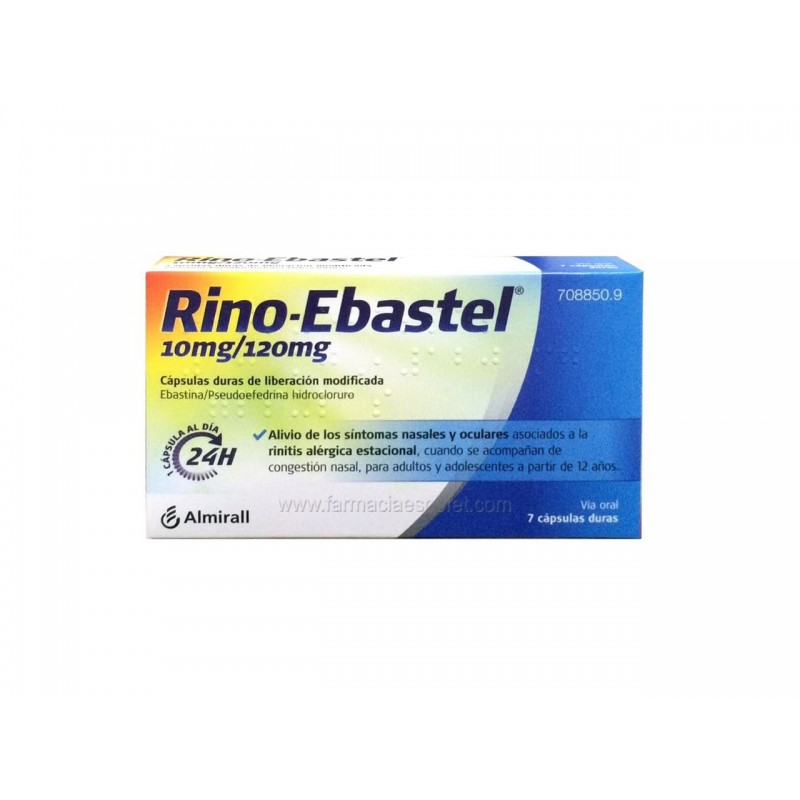



1 capsule daily relieves allergy symptoms (seasonal rhinitis, conjunctivitis) and rhinitis associated with colds.
It is a combination of an antihistamine with a nasal decongestant
What Rino-Ebastel is and what it is used for
Rino-Ebastel contains a combination of 2 active ingredients, ebastine and pseudoephedrine.
Ebastine is an antihistamine (antiallergic) and pseudoephedrine is a nasal decongestant. Antihistamines help reduce allergy symptoms by preventing the effects of histamine release. Decongestants help reduce nasal congestion.
Rino-Ebastel is indicated for the relief of nasal and eye symptoms associated with seasonal allergic rhinitis, when accompanied by nasal congestion, for adults and adolescents from 12 years of age.
You should see a doctor if it worsens or does not improve after 7 days of treatment.
How to take Rino-Ebastel
Always use Rino-Ebastel exactly as described in this leaflet or as your doctor or pharmacist has told you. If in doubt, ask your doctor or pharmacist.
Posology
The recommended dose in adolescents (between 12-17 years) is 1 capsule, 1 time a day, preferably with breakfast.
The recommended dose in adults is 1 capsule, 1 time a day, preferably with breakfast. If necessary, you can take 1 capsule every 12 hours.
In patients with severe liver disease, the dose of 1 capsule per day should not be exceeded.
The duration of treatment should be as short as possible and should be discontinued as symptoms disappear.
You should consult your doctor if it worsens, if symptoms persist for more than 7 days of treatment or if they are accompanied by a high fever.
Administration form
This medicine is taken orally.
Take the capsule whole, without opening or chewing it, with the help of a liquid (preferably a glass of water).
If you take more Rino-Ebastel than you should
If you take more Rino-Ebastel than you should you may notice: rapid breathing, excitement, nervousness, irritability, restlessness, tremors, seizures, palpitations, increased blood pressure, altered heart rhythm (arrhythmias), difficulty urinating. In more serious cases it can occur: decreased potassium in the blood (hypokalemia), mental disorder with altered reality perception (psychosis), seizures, coma and hypertensive crisis.
In case of overdose or accidental ingestion, immediately go to a medical center or call the Toxicological Information Service (phone: 915 620 420), indicating the medicine and the amount ingested.